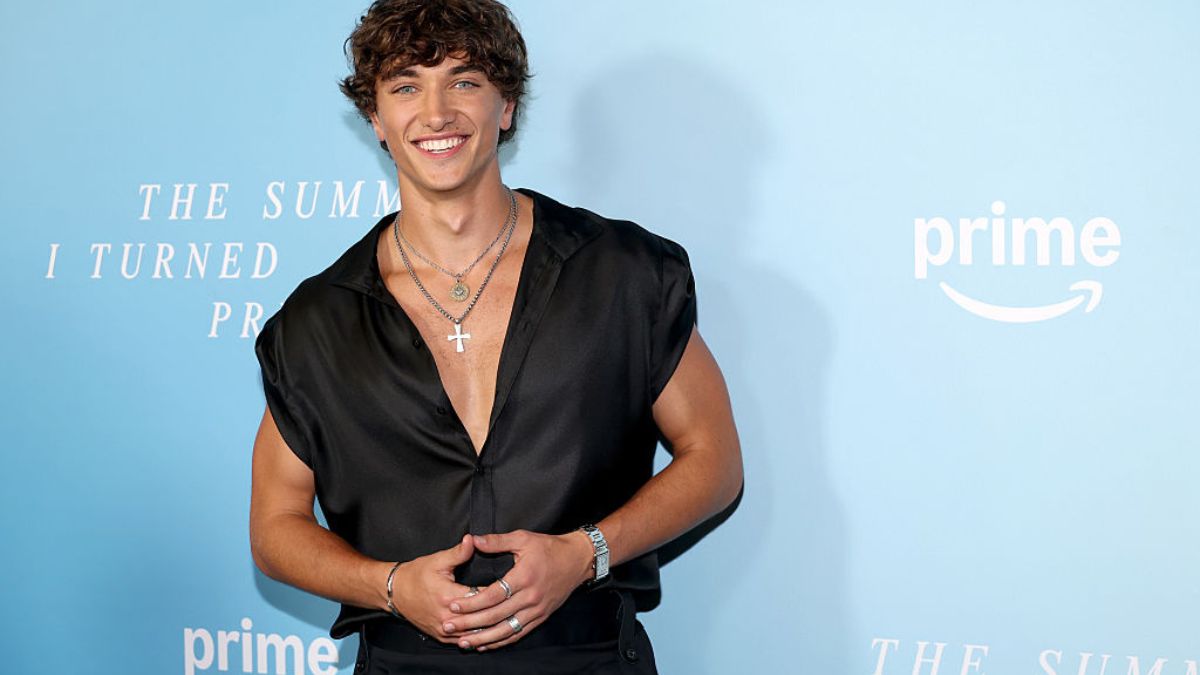
Dunkin’ is facing significant backlash over a new advertisement featuring The Summer I Turned Pretty actor Gavin Casalegno that has sparked controversy for its focus on “genetics.” The commercial, promoting the chain’s Golden Hour Refresher drinks, shows Casalegno by a pool discussing his natural tan and physical attributes in ways that critics say promote problematic messaging about race and appearance.
According to Page Six, in the advertisement, Casalegno sits poolside before standing up and addressing viewers about his bronzed appearance. The actor, who keeps his white shirt unbuttoned throughout the commercial to display his tanned skin, tells the camera that his tan is natural and attributes it to his genetic makeup. He explains that he recently received his color analysis results, which confirmed he is a “golden summer, literally.”
The backlash has been swift and brutal, with many customers expressing anger over what they perceive as the promotion of white features as superior. Social media users have criticized the ad’s emphasis on genetics, with one commenter asking, “Why are ads so obsessed with genetics all of a sudden?” Others have pointed out what they see as a disconnect between the company’s messaging and its workforce composition.
Critics draw parallels to the controversial Sydney Sweeney campaign
The Dunkin’ advertisement has drawn comparisons to a recent American Eagle jeans campaign featuring Sydney Sweeney that also faced criticism for its focus on ‘genes.’” In that advertisement, Sweeney discusses how genes determine traits like hair color and eye color before making a play on words about her blue “jeans.” The campaign was widely criticized as allegedly promoting “Nazi propaganda” and serving as a “racialized dog whistle” that praised blonde hair and blue eyes.
Customers should have stood there drinking their Dunkin’Donuts wearing their American Eagle jeans while watching Sydney Sweeney videos on their phones.
— Bronx Voice (@Bronxvoice1) August 1, 2025
Social media users have noted the similarities between the two campaigns, with one person wondering if the brands are using the same advertising agency. The Sweeney campaign faced such intense backlash that it was later mocked by singer Doja Cat, who recreated the ad’s monologue with an exaggerated Southern accent in a TikTok video that went viral.
Some critics have specifically called out what they see as inconsistencies in Dunkin’s messaging strategy. One commenter noted that 90 percent of Dunkin’ stores are owned and operated by Indian and other brown people, questioning why the company would create a commercial about white genetics. Another user characterized the ad as promoting the idea that “white is right,” expressing strong disapproval of the messaging approach.
The controversy highlights ongoing sensitivity around advertising that emphasizes physical traits and genetic attributes, particularly when those traits align with traditionally Eurocentric beauty standards. Critics argue that such messaging can perpetuate harmful ideas about racial superiority and reinforce problematic social hierarchies. The backlash against both the Dunkin’ and American Eagle campaigns suggests that consumers are increasingly scrutinizing advertising content for potentially discriminatory or exclusionary messaging.







